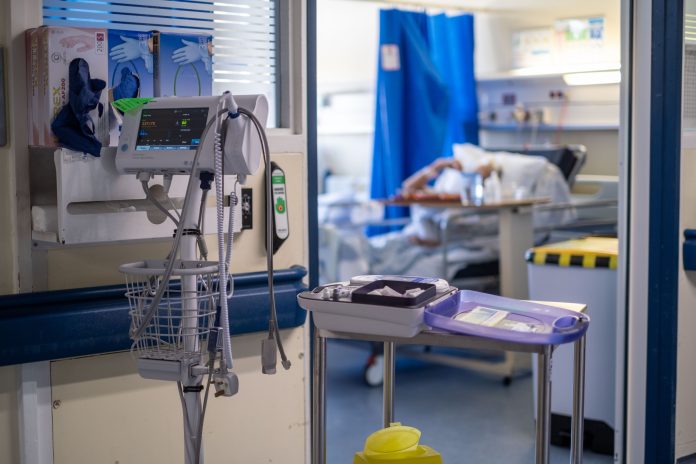Thousands of cancer patients in England are set to get faster access to cancer vaccine trials after the launch of an NHS service to find new life-saving treatments, NHS England reported.
The NHS has announced that it has treated its first patient in England with a personalised bowel cancer vaccine as part of a clinical trial at the new NHS England Cancer Vaccine Launchpad.
Thousands of patients are expected to benefit from NHS England’s new cancer vaccine launch site, which will allow those who want to take part in the clinical trial to quickly get to one of the nearest participating hospitals.
Thirty hospitals in England have already signed up to the pioneering Cancer Vaccine Launchpad – one of the largest projects of its kind in the world – and more will join the platform in the coming months. Therefore, patients who agree to take part receive a sample of cancer tissue and submit to a blood test. If they meet the clinical trial selection criteria, they can be referred to the nearest participating NHS centre.
The cancer vaccines being evaluated in the colorectal cancer trial are based on mRNA technology – the same as Pfizer-BioNTech’s COVID-19 vaccine – and are created by analysing a patient’s tumour to identify mutations specific to their own cancer.
The investigational cancer vaccines, jointly developed by biopharmaceutical companies BioNTech and Genentech, part of the Roche group, are still being tested and have yet to be approved by regulators.
Elliot Phebve, first person to receive a cancer vaccine
Higher education lecturer Elliot, 55, had no symptoms of cancer and was diagnosed during a routine health check with his GP. He received the developmental jab at University Hospitals Birmingham NHS Foundation Trust, one of several centres taking part in a colorectal cancer vaccine trial sponsored by BioNTech SE.
“Taking part in this trial tallies with my profession as a lecturer, and as a community-centred person. I want to impact other people’s lives positively and help them realise their potential. Through the potential of this trial, if it is successful, it may help thousands, if not millions of people, so they can have hope, and may not experience all I have gone through. I hope this will help other people.”
A computed tomography (CT) scan and a colonoscopy confirmed he had colon cancer and Eliott had surgery to remove the tumour and 30 cm of his large intestine. He was then referred to the Queen Elizabeth Hospital Birmingham for initial rounds of chemotherapy and to take part in a clinical trial. It is one of several that will be held at NHS trusts across the country to treat different types of cancer.
Health service representatives’ comments
Amanda Pritchard, NHS chief executive, said as follows:
“Seeing Elliot receive his first treatment as part of the Cancer Vaccine Launch Pad is a landmark moment for patients and the health service as we seek to develop better and more effective ways to stop this disease. Thanks to advances in care and treatment, cancer survival is at an all-time high in this country, but these vaccine trials could one day offer us a way of vaccinating people against their own cancer to help save more lives. (…) The NHS is in a unique position to deliver this kind of world-leading research at size and scale, and as more of these trials get up and running at hospitals across the country, our national match-making service will ensure as many eligible patients as possible get the opportunity to access them.”
Professor Peter Johnson, National Clinical Director of the NHS National Cancer Service, said of the possible effects after the vaccine:
“Even after a successful operation, cancers can sometimes return because a few cancer cells are left in the body, but using a vaccine to target those remaining cells may be a way to stop this happening. Access to clinical trials could provide another option for patients and their families, and I’m delighted that through our national launch pad we will be widening the opportunities to be part of these trials for many more people, with thousands of patients expected to be recruited in the next year.”
Executive Director of Research and Innovation at Cancer Research UK, Iain Foulkes, said:
“It’s incredibly exciting that patients in England are beginning to access personalised cancer vaccines for bowel cancer. This technology pioneers the use of mRNA-based vaccines to sensitise people’s immune system and in turn detect and target cancer at its earliest stages. Clinical trials like this are vital in helping more people live longer, better lives, free from the fear of cancer. If successful, the vaccine will be a game changer in preventing the onset or return of bowel cancer.”
Last year, the government signed an agreement with BioNTech to provide up to 10,000 patients with precision cancer immunotherapy by 2030. BioNTech has already started clinical trials in the United Kingdom, and the NHS launchpad is helping to accelerate the identification of patients suitable for these trials in England.
Scores of patients so far have taken part in the trials, but most participants are expected to be enrolled in the programme from 2026.
